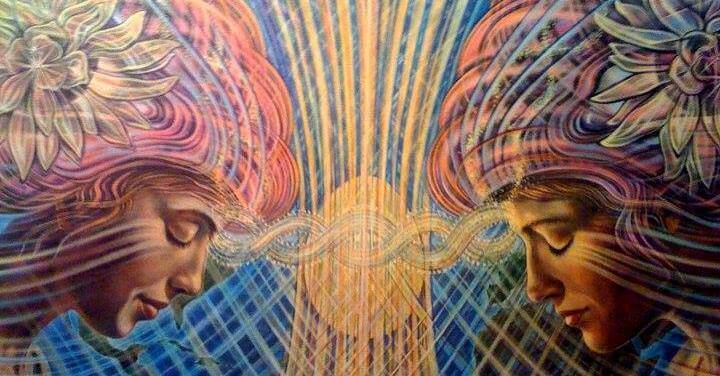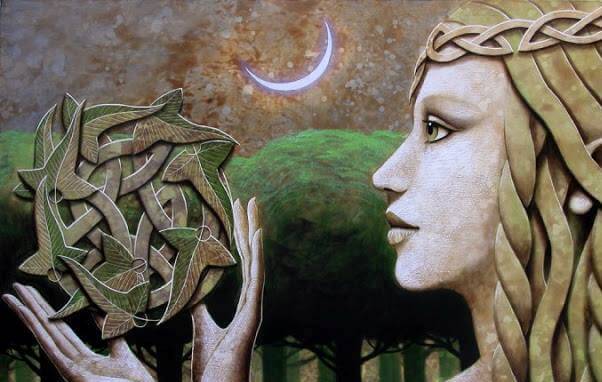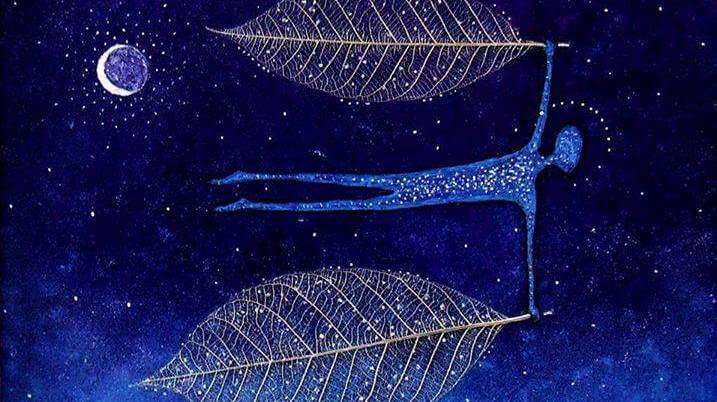My Conscience Is More Valuable to Me Than Any Opinion

It may be the years or perhaps maturity, but there always comes a moment when we finally “wake up” to our conscience, when we raise our voice against the noise and make our position clear. Because there is nothing more comforting than going to bed with a calm heart and a clear conscience, no matter what the world thinks.
Antonio Damasio is a known neuroscience expert in the emotions. He defines conscience as a subtle harmony between an autobiographical self, the other social, and a third that mixes an emotional self with a spiritual self. Being fully aware of this particular and unique structure allows us to be more skilled and consistent in our reality.
If you say what you think, do what your heart dictates and you have a clear conscience after that, then do not hesitate: you did what you had to.
We all have a conscience, and is like the breath of the soul, the beacon of our emotions that gives voice to our hearts. It tells us when something is right and when something is wrong. You have to tune into it and know how to foster that inner awakening in order to be able to act fearlessly.

Awakening the conscience is sometimes painful
Carl Gustav Jung used to tell us that that “in order to awaken you must look inward.” Although the famous psychologist was a key figure in early psychoanalysis, his methodology also closely linked to anthropology, mythology and philosophy. Hence, his conception of conscience in humans still stirs a great interest in us.
Like the neurologist Antonio Damasio, Jung defined conscience as a psychological entity where our deepest vital and emotional experiences are integrated. To awaken it, it is necessary to “look inward” in order to be aware of unpleasant facts, mistakes and personal values or principles not respected by fear or indecision. Because we are subject to others’ moral conscience and not our own.
Becoming aware of each of these personal dimensions is sometimes a true act of pain. According to Gustav Jung, people may be capable of doing anything in order to not confront their own soul or their own conscience. Therefore, to get to the “light”, we need to make ourselves aware of our “obscurities”. Only then we will feel free, only then will we have connected ourselves with integrity and healing.

I Stopped Giving Explanations To Those Who Only Understand What They Want
Practice personal freedom and the art of assertiveness: stop explaining every aspect of your life: whoever does not … See more »
Quiet consciences, an exercise that is done from the heart
Many of the social and political contexts in which we live today, there is a lack of moral conscience. Where ethics, respect, the love for others should always flourish, instead, our humanity today escapes through the chimney of selfishness and self interest.
Let’s develop appropriate strategies to create an awareness of the heart: a quiet, affectionate and consistent voice where there is mutual respect, as well as self-respect.

Keys to develop a free and respectful conscience
Our individual consciences are more than the reflection of the moral teachings handed down to us. It is not enough to know what is right and what is wrong, “we have to feel it.” For this, it is necessary to awaken from our slumber and make our thoughts and feelings conscious.
We will teach you how, and for this, we suggest you reflect on the differences between seeing, looking and contemplating when developing our consciences.
- Seeing is the art of being drawn in without delving into things. Some people spend much of their time “seeing” how reality happens to them. It is a primal stage of those consciences that do not take sides, who are led by what you tell them, what you order them to do or suggest to them without resistance, without question…
- The second phase in our inner development is the ability to know how to “look”. Here there is intention because we decided what to see and what not to. We can be guided by curiosity, desire, and when we do it, when we look, we are not indifferent: we feel things, pleasure, disgust, anger, pleasure, fear…
- The third step in our awareness is the ability to contemplate. Socrates said that the highest degree of knowledge is to look at the why of things. Contemplation is an enriching exercise because examine what surrounds us “from the inside out”. There is a connection with that internal “I” who is able to judge for itself what is right and what is wrong, which has its own opinion, its values and its unquestionable integrity.

Our consciences should be able to contemplate everything that surrounds us under the light of that emotional beacon that is linked to our hearts. Only then will they stop acting on external noise or the opinions of others. A clear conscience is worth more than all the gold in the world. It is the soft pillow with which we get the best rest and a fuller life.
My Inner Peace Is Not Negotiable
For a while her monsters had closed the door to her inner peace and had forgotten that her right to be well was not … More »
It may be the years or perhaps maturity, but there always comes a moment when we finally “wake up” to our conscience, when we raise our voice against the noise and make our position clear. Because there is nothing more comforting than going to bed with a calm heart and a clear conscience, no matter what the world thinks.
Antonio Damasio is a known neuroscience expert in the emotions. He defines conscience as a subtle harmony between an autobiographical self, the other social, and a third that mixes an emotional self with a spiritual self. Being fully aware of this particular and unique structure allows us to be more skilled and consistent in our reality.
If you say what you think, do what your heart dictates and you have a clear conscience after that, then do not hesitate: you did what you had to.
We all have a conscience, and is like the breath of the soul, the beacon of our emotions that gives voice to our hearts. It tells us when something is right and when something is wrong. You have to tune into it and know how to foster that inner awakening in order to be able to act fearlessly.

Awakening the conscience is sometimes painful
Carl Gustav Jung used to tell us that that “in order to awaken you must look inward.” Although the famous psychologist was a key figure in early psychoanalysis, his methodology also closely linked to anthropology, mythology and philosophy. Hence, his conception of conscience in humans still stirs a great interest in us.
Like the neurologist Antonio Damasio, Jung defined conscience as a psychological entity where our deepest vital and emotional experiences are integrated. To awaken it, it is necessary to “look inward” in order to be aware of unpleasant facts, mistakes and personal values or principles not respected by fear or indecision. Because we are subject to others’ moral conscience and not our own.
Becoming aware of each of these personal dimensions is sometimes a true act of pain. According to Gustav Jung, people may be capable of doing anything in order to not confront their own soul or their own conscience. Therefore, to get to the “light”, we need to make ourselves aware of our “obscurities”. Only then we will feel free, only then will we have connected ourselves with integrity and healing.

I Stopped Giving Explanations To Those Who Only Understand What They Want
Practice personal freedom and the art of assertiveness: stop explaining every aspect of your life: whoever does not … See more »
Quiet consciences, an exercise that is done from the heart
Many of the social and political contexts in which we live today, there is a lack of moral conscience. Where ethics, respect, the love for others should always flourish, instead, our humanity today escapes through the chimney of selfishness and self interest.
Let’s develop appropriate strategies to create an awareness of the heart: a quiet, affectionate and consistent voice where there is mutual respect, as well as self-respect.

Keys to develop a free and respectful conscience
Our individual consciences are more than the reflection of the moral teachings handed down to us. It is not enough to know what is right and what is wrong, “we have to feel it.” For this, it is necessary to awaken from our slumber and make our thoughts and feelings conscious.
We will teach you how, and for this, we suggest you reflect on the differences between seeing, looking and contemplating when developing our consciences.
- Seeing is the art of being drawn in without delving into things. Some people spend much of their time “seeing” how reality happens to them. It is a primal stage of those consciences that do not take sides, who are led by what you tell them, what you order them to do or suggest to them without resistance, without question…
- The second phase in our inner development is the ability to know how to “look”. Here there is intention because we decided what to see and what not to. We can be guided by curiosity, desire, and when we do it, when we look, we are not indifferent: we feel things, pleasure, disgust, anger, pleasure, fear…
- The third step in our awareness is the ability to contemplate. Socrates said that the highest degree of knowledge is to look at the why of things. Contemplation is an enriching exercise because examine what surrounds us “from the inside out”. There is a connection with that internal “I” who is able to judge for itself what is right and what is wrong, which has its own opinion, its values and its unquestionable integrity.

Our consciences should be able to contemplate everything that surrounds us under the light of that emotional beacon that is linked to our hearts. Only then will they stop acting on external noise or the opinions of others. A clear conscience is worth more than all the gold in the world. It is the soft pillow with which we get the best rest and a fuller life.
My Inner Peace Is Not Negotiable
For a while her monsters had closed the door to her inner peace and had forgotten that her right to be well was not … More »
This text is provided for informational purposes only and does not replace consultation with a professional. If in doubt, consult your specialist.







